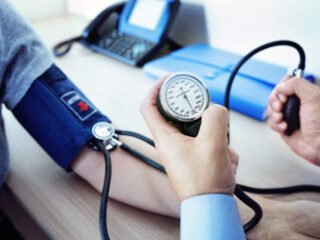New Delhi, 02 September, 2025: Do you often feel sluggish, drowsy, or low on energy even after getting a good night’s sleep? Many people blame stress, poor rest, or lack of exercise for their daytime fatigue. While these factors certainly play a role, experts warn that your diet may be a hidden culprit. Surprisingly, some of the foods we consume daily—often considered harmless or even healthy—can actually make us feel more tired and lethargic.
From refined carbs to heavy dairy products, these foods can cause spikes and crashes in blood sugar, disrupt digestion, and affect brain chemicals that regulate alertness. Let’s take a closer look at the five common foods that might be sapping your energy, why they have this effect, and how you can tweak your diet to feel more energized.
Why Certain Foods Make You Sleepy
Food is fuel—but not all fuels burn the same way. Some foods release energy slowly and steadily, keeping you active and alert. Others create a short-lived spike in blood sugar, followed by a crash that leaves you groggy.
Nutrition experts explain that three main factors influence whether food makes you feel energized or sluggish:
- Glycemic Index (GI): High-GI foods (like white bread or sugary snacks) release sugar quickly into the bloodstream, causing a rapid energy spike and subsequent crash.
- Digestive Load: Foods that are high in fat or very heavy can slow digestion, diverting blood to the stomach and making you feel sleepy.
- Amino Acid Balance: Certain foods affect neurotransmitters like serotonin and melatonin, which regulate sleepiness and alertness.
With that in mind, let’s look at the five foods that might be dragging your energy down.
1. White Bread and Refined Carbs
Most of us eat refined carbs every day in the form of white bread, pasta, pastries, or biscuits. While they provide quick energy, the effect doesn’t last.
- Why it makes you sleepy: Refined carbs are quickly broken down into sugar, leading to a rapid blood sugar spike. Your body responds by releasing insulin, which lowers blood sugar levels—sometimes too much. This sudden dip makes you feel weak, irritable, and sleepy.
- Expert insight: Nutritionists say that replacing refined carbs with whole grains like brown rice, oats, or whole-wheat bread provides more stable energy because they contain fiber that slows digestion.
- What to do instead: Swap white bread for whole-grain bread, and pair carbs with protein (like eggs or nuts) to prevent spikes.
2. Sugary Snacks and Beverages
That afternoon candy bar, energy drink, or even a flavored coffee may give you a temporary boost—but the crash comes quickly.
- Why it makes you sleepy: Foods and drinks high in added sugar flood the bloodstream with glucose, giving you a sugar high. But within an hour or two, the crash sets in, leaving you more drained than before.
- Hidden sources: Breakfast cereals, packaged juices, and so-called “health bars” often contain more sugar than expected.
- What to do instead: Choose snacks that balance protein, fiber, and healthy fats—like fruit with peanut butter or a handful of almonds. These keep energy levels steady without the crash.
3. Fried and Fatty Foods
Think burgers, fries, samosas, or creamy gravies—comfort foods that often leave us yawning afterward.
- Why it makes you sleepy: High-fat meals take longer to digest. To process them, your body redirects blood flow to the digestive system, making you feel sluggish. These foods also delay stomach emptying, creating heaviness and bloating.
- Expert insight: Consuming fried foods regularly not only affects energy levels but also increases the risk of obesity, heart disease, and insulin resistance.
- What to do instead: Try baking, grilling, or air-frying your food instead of deep-frying. Pairing fats with fiber-rich vegetables helps lighten the load.
4. Dairy Products (Especially Cheese and Milk at Night)
Dairy isn’t bad in moderation, but certain forms can make you feel drowsy—particularly if consumed late in the evening.
- Why it makes you sleepy: Dairy contains the amino acid tryptophan, which promotes the production of serotonin and melatonin—hormones linked with sleep. Heavy dairy foods, like cheese or creamy desserts, can also cause sluggish digestion.
- Expert insight: While a glass of warm milk may aid sleep at night, having heavy dairy products during the day may contribute to lethargy.
- What to do instead: If you love dairy, choose lighter options like yogurt or paneer, and combine them with fresh fruits or vegetables for balance.
5. Processed and Red Meat
Sausages, bacon, kebabs, and heavily processed meats are often part of festive meals but can leave you sluggish.
- Why it makes you sleepy: These foods are high in saturated fat and salt, which slow down digestion and cause dehydration, both of which sap energy. They also lack fiber, so they don’t sustain long-term alertness.
- Expert insight: Red and processed meats are linked with increased risk of heart disease and certain cancers when consumed excessively.
- What to do instead: Replace processed meats with lean proteins like fish, chicken, lentils, or beans. These are easier to digest and provide steady energy.
Other Common Culprits
Apart from the top five, experts highlight other foods that can contribute to fatigue:
- Alcohol: Initially sedative, but disrupts sleep cycles and leaves you drained the next day.
- Bananas: Rich in magnesium, they can promote muscle relaxation and sleepiness if eaten in large amounts.
- Caffeine (in excess): A paradox—too much coffee may cause dependency and rebound fatigue when its effects wear off.
How to Fix Sluggishness Through Diet
Feeling tired after meals is common, but with the right strategies, you can reduce it:
- Eat balanced meals with a mix of complex carbs, lean protein, and healthy fats.
- Practice portion control—overeating, even healthy foods, can make you feel sluggish.
- Stay hydrated—dehydration often masquerades as fatigue.
- Limit high-sugar, high-fat foods to occasional indulgences.
- Snack smart—opt for fruits, nuts, seeds, or yogurt instead of processed snacks.
- Time your meals—avoid very heavy lunches that can make afternoons unproductive.
Lifestyle Habits That Complement Diet
Nutrition is only one piece of the puzzle. Lifestyle choices also play a big role in how alert you feel throughout the day:
- Regular exercise boosts circulation and energy.
- Adequate sleep (7–8 hours) ensures your body recovers properly.
- Stress management through yoga, meditation, or hobbies can prevent mental fatigue.
- Mindful eating—paying attention to portion sizes and food quality—helps maintain balance.
If you’ve been asking yourself, “Why do I feel so sluggish all the time?” the answer may be sitting right on your plate. Foods like refined carbs, sugary snacks, fried items, dairy, and processed meats may be silently draining your energy.
The good news? By making small changes—like switching to whole grains, choosing lean proteins, and moderating dairy—you can experience a big boost in energy levels. Pair these dietary adjustments with hydration, regular exercise, and quality sleep, and you’ll notice a visible difference in your daily alertness and productivity.
So next time you’re fighting the urge to nap after lunch, take a closer look at what you’re eating. Sometimes, the fix for fatigue is as simple as changing your diet.






